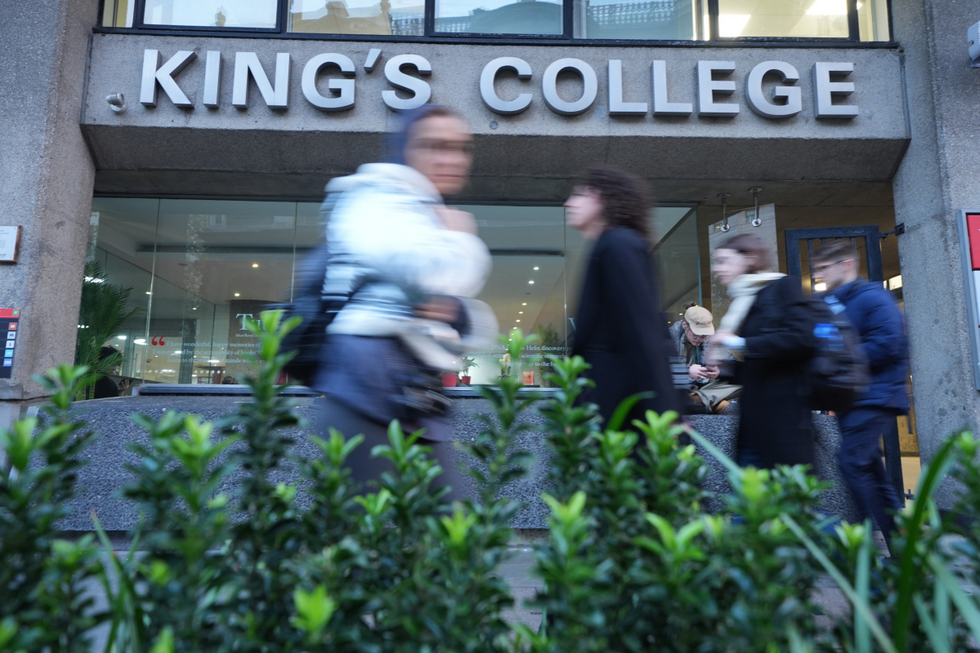University students at King's College London (KCL) have been asked to participate in "race-segregated" classes funded by the NHS.
The sessions have reportedly divided white students and those from ethnic minorities into separate groups for discussions about race and identity.
Critics have accused the university of being "hooked on identity politics", with concerns that "wokeness" is creating racial divisions and turning students into victims.
The programme, part of the NHS-funded Doctorate of Clinical Psychology, has specifically requested students from racially and ethnically minoritised (REM) backgrounds to attend dedicated sessions.
King's College London
PA

The source also alleged that students were left with the impression that "white people are culturally indifferentiable" and lack any distinct culture. According to the source, the approach has damaged relationships between students of different races.
In one session last summer, students reportedly felt such shame about their race and Britain that when asked about "the best thing the UK has done", there was a long pause before one British student sheepishly answered "gravy".
The source noted this occurred shortly before D-Day commemorations. The insider also claimed the programme's "wokeness" resulted in ethnic minority students being treated as "victims of the system" regardless of their actual background.
Sir John Hayes, chairman of the Common Sense Group of MPs and peers, called the situation "outrageous...This is yet another perpetuation of nonsense about white privilege and guilt and a distortion of history," he said, announcing plans to seek an investigation from the Equality and Human Rights Commission.
A King’s College London spokesman said: "We don’t recognise the scenario described, which is not an accurate account or description of the sessions and does not reflect the multiple aspects or aims of the course.
"These reflective sessions, which are open to all clinical psychology students, form part of our commitment to NHS England and HEE’s action plans which require all universities to help improve equality in access to healthcare and support diversity in the workforce.
"The sessions are in common with many other clinical psychology courses, and have been developed in response to feedback from trainees to support a greater understanding of the experience of all patients."

 By GB News (World News) | Created at 2025-01-18 23:05:58 | Updated at 2025-01-19 02:26:13
3 hours ago
By GB News (World News) | Created at 2025-01-18 23:05:58 | Updated at 2025-01-19 02:26:13
3 hours ago









